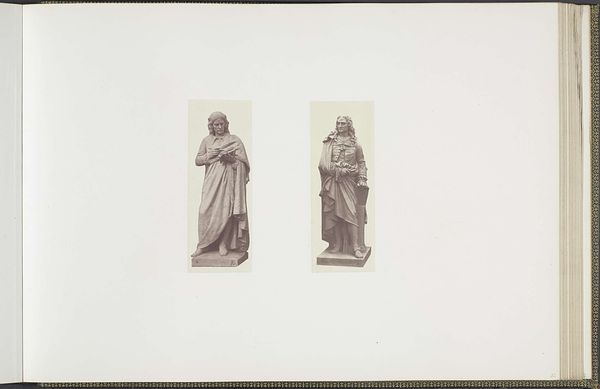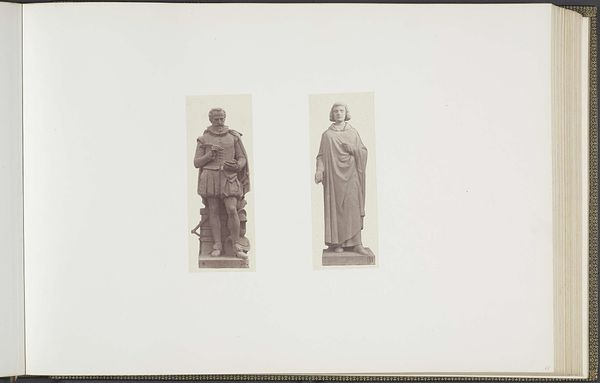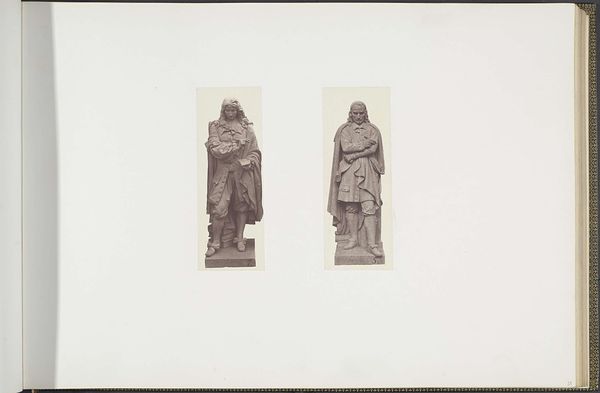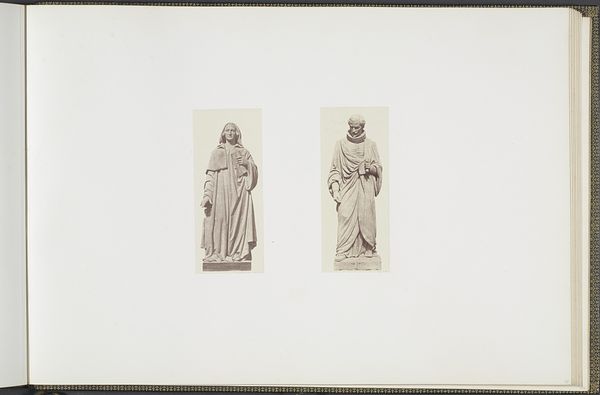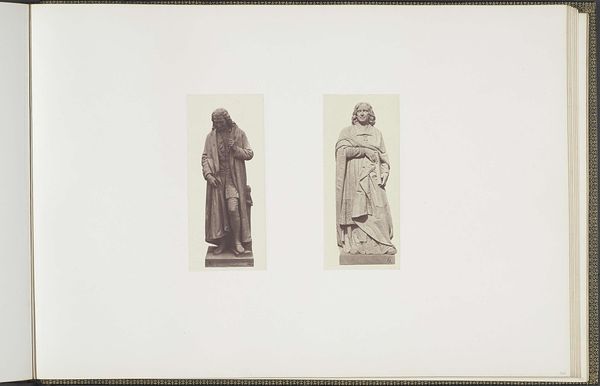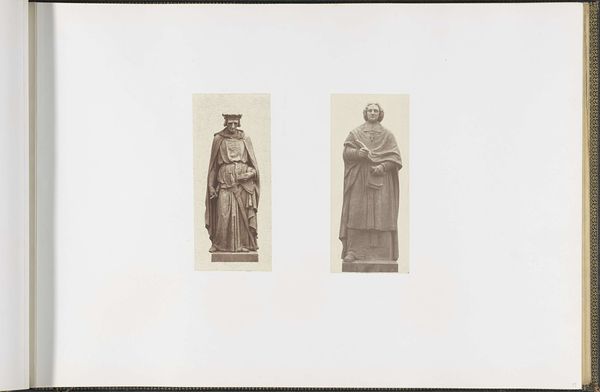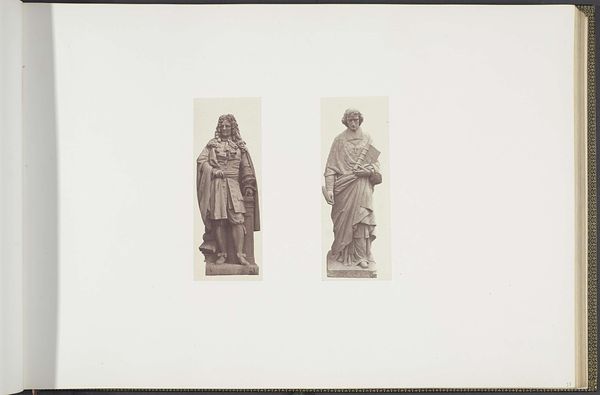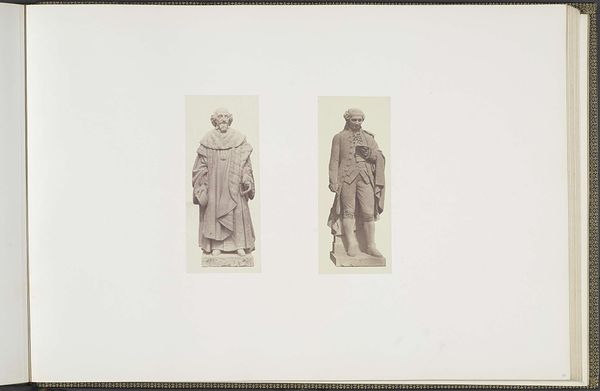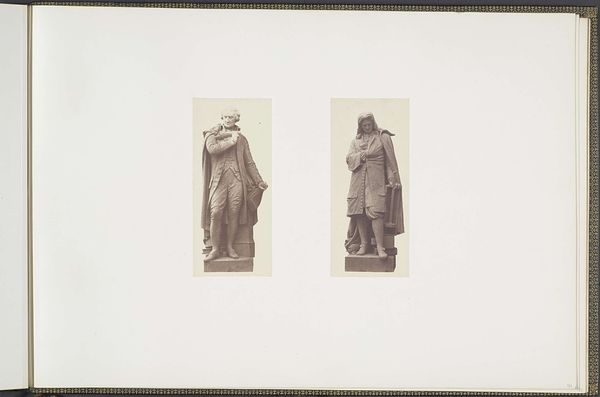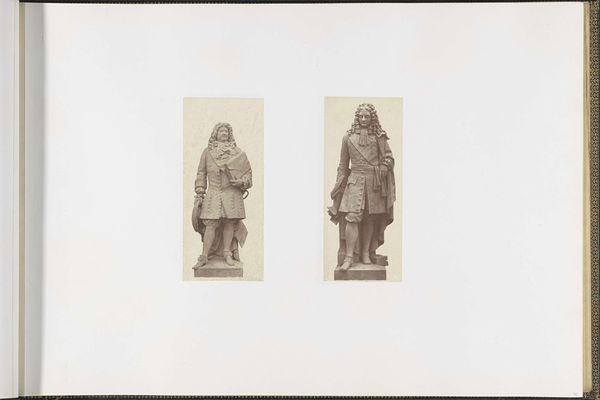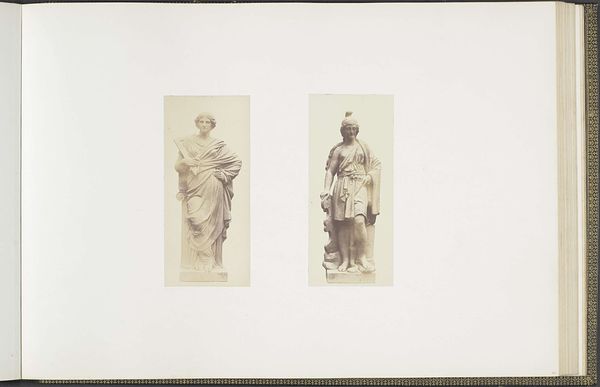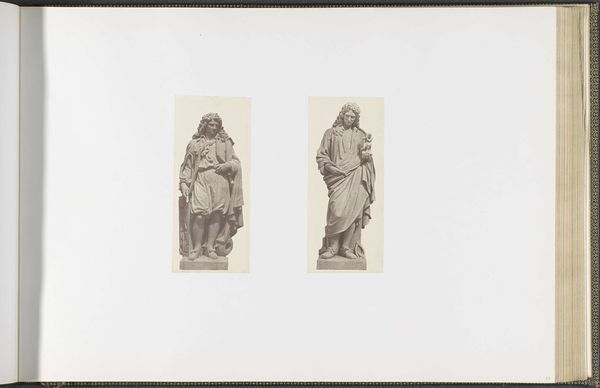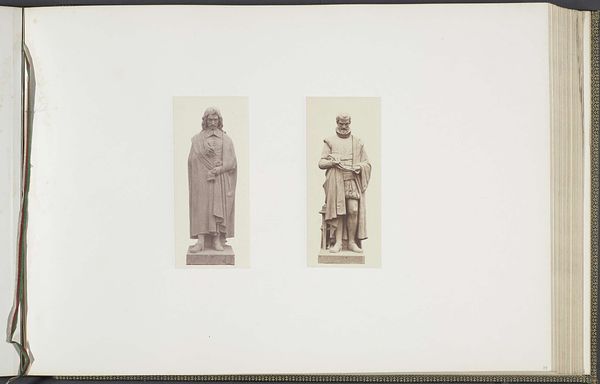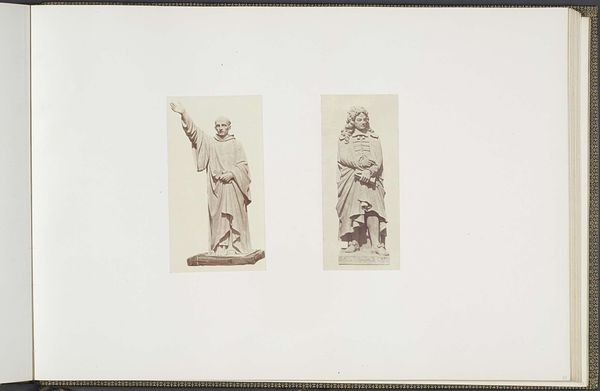
Gipsmodellen voor beeldhouwwerken op het Palais du Louvre: links "D'Aguesseau" door Louis Caillouet en rechts "Mansart" door Jean-Joseph Perraud c. 1855 - 1857
0:00
0:00
edouardbaldus
Rijksmuseum
print, bronze, photography, sculpture
#
portrait
# print
#
bronze
#
photography
#
sculpture
#
academic-art
Dimensions: height 382 mm, width 560 mm
Copyright: Rijks Museum: Open Domain
This photograph by Edouard Baldus captures plaster models for sculptures at the Palais du Louvre. Plaster, a humble material made from gypsum, is mixed with water to create a workable paste, then cast and carved. The choice of plaster is critical; it's a cost-effective stand-in for the more prestigious marble or bronze. These models allowed sculptors Louis Caillouet and Jean-Joseph Perraud to test their ideas before committing to more permanent and expensive materials. Plaster is often seen as a medium for replication and reproduction, perfectly suited to the industrial age, where the hand of the artist seems less important than the efficiency of production. Baldus’s photograph captures not the final artwork, but an image of the creative process. Ultimately, by focusing on materials and process, we see how these factors are deeply intertwined with the social and economic forces that shape artistic creation.
Comments
No comments
Be the first to comment and join the conversation on the ultimate creative platform.
